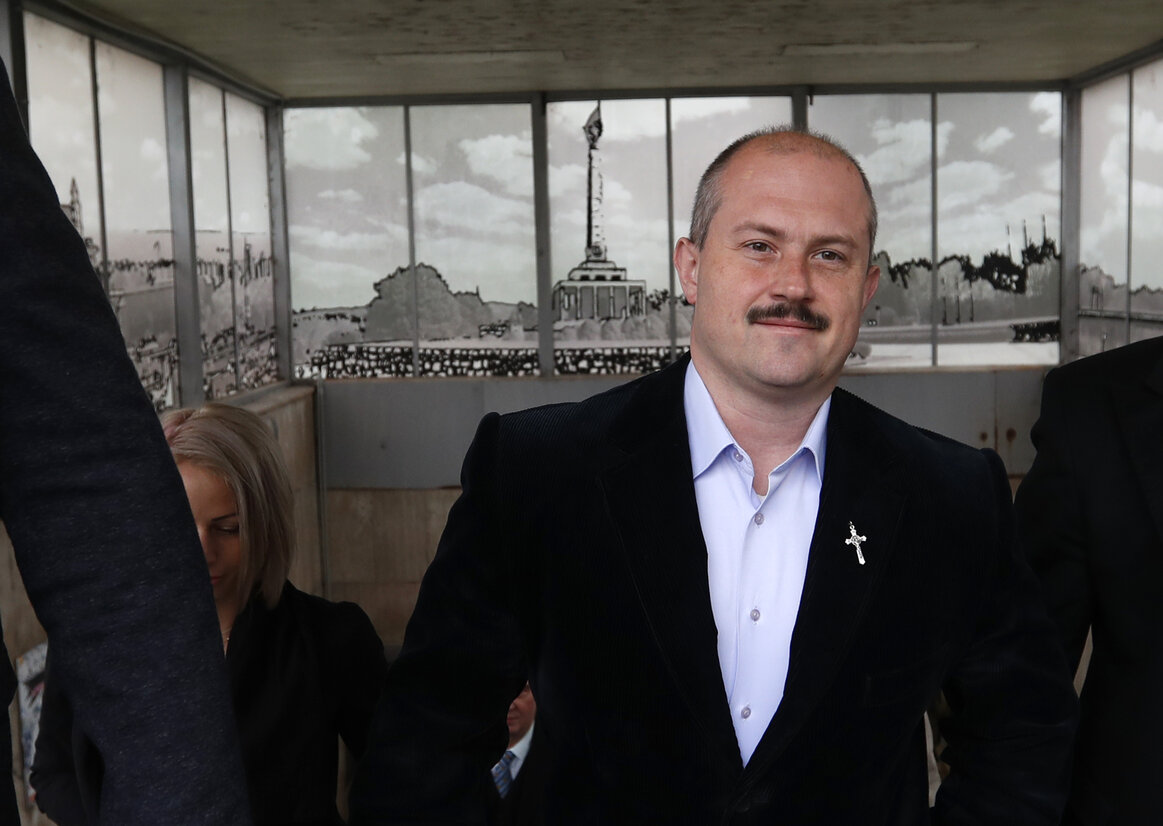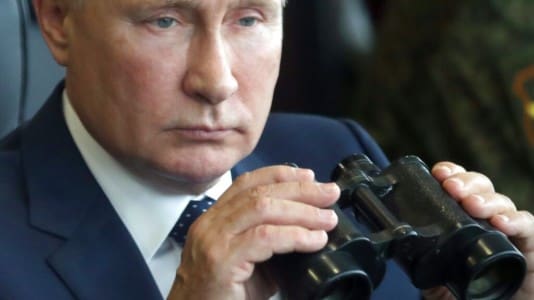The leader of a far-right political party in Slovakia has lost his parliamentary mandate and been handed a six-month suspended custodial sentence after being found guilty of expressing neo-Nazi sympathies.
Marian Kotleba, leader of the People’s Party Our Slovakia (LSNS), was appealing an initial verdict passed by Slovakia’s specialized criminal court in 2020 which found him guilty of supporting a movement “aimed at suppressing fundamental human rights,” and sentenced him to four years and four months in prison.
The Slovak Supreme Court on Tuesday reaffirmed his guilt but reduced his custodial sentence to six months suspended, meaning Kotleba will not go to prison unless he breaks any conditions of the sentence. He will, however, lose his parliamentary mandate.
The politician, who did not attend Tuesday’s trial, will also be subject to an 18-month probation.
“The mere presentation of symbols and slogans is not enough to deduce the promotion of Nazi and neo-Nazi ideology,” said the chairman of the Senate of the Supreme Court, justifying the verdict.
The controversy dates back to 2017 when Kotleba was tried for publicly handing over a financial gift to three families in at a high school in Banská Bystrica using symbolic checks. Each check amounted to €1,488. According to investigators, the numbers 14 and 88 are known and used in extremist neo-Nazi symbolism. The gift was handed over on the anniversary of the founding of the First Slovak Republic.
The First Slovak Republic was a client state of Nazi Germany. According to the Slovak Prosecutor’s Office, the number 14 refers to the number of words in the English sentence of the right-wing terrorist David Lane, which reads: “We must secure the existence of our people and a future for white children.” The “88” is representative of the eighth letter of the alphabet, H, with HH considered to be an abbreviated form of the Nazi salute of “Heil Hitler.”
According to public opinion polls in Slovakia, the popularity of the People’s Party Our Slovakia is currently below the 5 percent threshold, which is a condition for entering the Chamber of Deputies. Several members of the Slovak Parliament and one MEP left Kotleba’s party last year, joining the Republic movement, whose support is around 7 percent.






